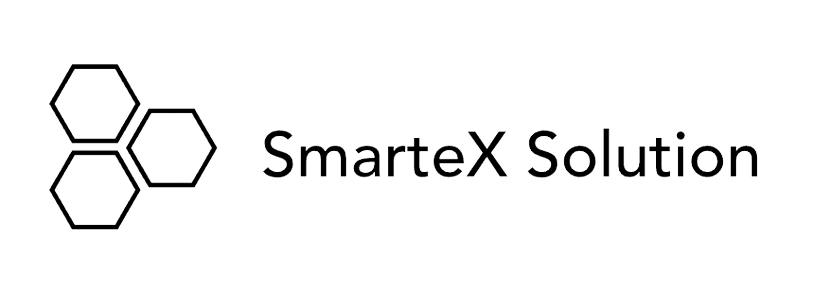Introduction
In a world driven by constant change and innovation, it’s time to rethink the way we approach personal growth and development. The term “self-help” has been around for centuries, evolving from its origins in the 1800s to become a multi-billion-dollar industry today. However, the very term that is meant to empower us often carries a stigma that needs to be shed. In this article, we will explore the need for a better label than “self-help” and propose alternative titles that capture the essence of personal growth without the associated baggage. Join us on this journey as we unravel the complexities surrounding the self-improvement landscape and dive into seven innovative proposals for a new and improved way of labeling these transformative resources.
The Legacy of Self-Help
When the term “self-help” was first introduced in the 1800s, its association with self-improvement through self-control seemed promising. Over time, this concept blossomed into the vast industry we now recognize, with self-help authors becoming household names. Think of iconic figures like Rachel Hollis, Tony Robbins, Eckhart Tolle, Brené Brown, and Dale Carnegie. Their books, revered by many, have spurred conversations and even influenced social media captions. Yet, despite their popularity, there remains a sense of discomfort among readers when admitting to engaging with self-help materials.
The Unspoken Shame
The mere utterance of the words “self-help book” can trigger subtle feelings of shame or embarrassment. While the intention of these books is to assist individuals in their personal growth journey, the term itself carries undertones of judgment and stereotypes. Historically, self-help was associated with middle-aged women seeking solutions to their dissatisfaction with body image or marriage. However, times have changed, and these books have evolved to address a wide range of topics – from becoming a better parent to excelling in the corporate world. Still, the stigma persists, making it challenging for individuals to openly embrace their interest in personal growth.
The Conundrum of Self-Help
Perhaps the challenge lies in admitting the need for help – be it from a self-help book or other sources. In a society that values extroversion and perfection, acknowledging personal struggles and seeking assistance is often seen as a sign of weakness. The very act of reading a self-help book may be interpreted as an admission of inadequacy. However, recognizing the need for improvement is an act of strength. It takes courage to acknowledge that there is room for growth and that one is committed to becoming the best version of themselves.
The Power of Self
At its core, personal growth begins with the self. Our thoughts influence our emotions, which in turn impact our actions. These actions have a ripple effect on the world around us. Therefore, dedicating time to read self-help books and work on self-improvement is not indulgence; it’s an investment in creating positive change. Imagine if everyone prioritized their personal growth – society as a whole would experience profound transformation. The self is the epicenter of change, and focusing on its evolution can lead to a brighter future for all.
Redefining the Label
Acknowledging the flaws and limitations of the term “self-help,” it’s time to consider alternative labels that capture the essence of personal growth without the baggage. Let’s delve into seven proposals that reimagine the way we categorize these transformative resources:
1. Growth Books
This proposal seeks to emphasize the primary goal – growth. By labeling these books as “Growth Books,” we shift the focus to the journey of self-improvement rather than the act of seeking help. Just as a sapling flourishes when nurtured, these books water the seeds of personal development.
2. Mind Reads
The mind is the driving force behind all change. Whether the content revolves around physical fitness or emotional well-being, it all begins within the mind. “Mind Reads” acknowledges the importance of the mind and its role in personal transformation.
3. Mind Food
Taking a literal approach, “Mind Food” suggests that these books nourish the mind. Just as physical nourishment is essential for the body, mental nourishment is vital for personal growth. However, potential confusion with culinary references should be considered.
4. Growth Guides
Positioning these books as “Growth Guides” highlights their practical nature. They are tools that guide individuals through the process of self-improvement, offering actionable insights and strategies for personal growth.
5. Progression Manuals
“Progression Manuals” aligns with the idea that personal growth is a journey of continuous progress. This label emphasizes the forward momentum and positive change that these books facilitate.
6. Evolution Resources
Personal growth is synonymous with evolution. This proposal suggests labeling these books as “Evolution Resources,” emphasizing the transformative nature of the content and the reader’s journey.
7. Empowerment Literature
Lastly, “Empowerment Literature” reflects the overarching goal of self-help books – to empower individuals to take control of their lives, embrace change, and become the architects of their own success.
Conclusion: Embracing Transformation
In the end, it’s not about the label itself; it’s about the transformative potential that these books hold. Whether we choose to call them “Growth Books,” “Mind Reads,” or any of the other proposed titles, what matters most is that we embrace the journey of self-improvement. It’s time to shed the shame, break free from stereotypes, and invest in our personal growth unapologetically. Let us embark on this journey of empowerment and transformation, fueled by the wisdom found within these pages.






